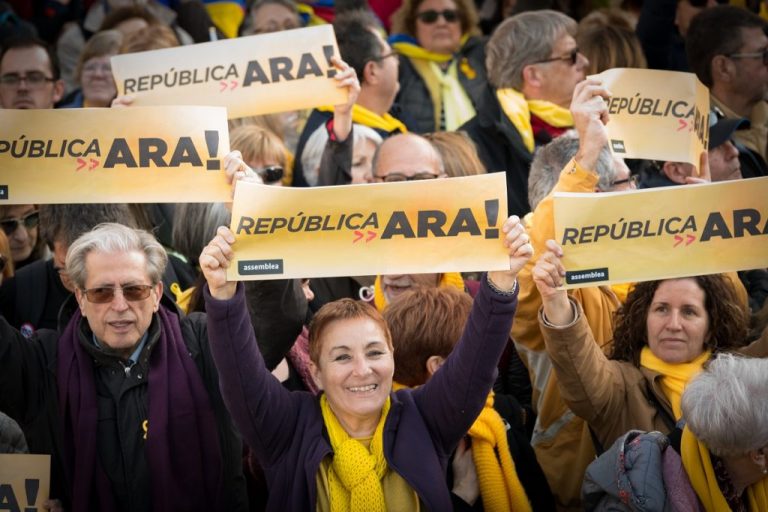
Last Friday, Pedro Sánchez, the leader of the PSOE (Spanish Socialist Workers Party), won the necessary votes to move forward with a motion of no-confidence and oust the government of Mariano Rajoy (PP). Because of that, Sánchez became the new president of the Spanish government, in part thanks to the votes of the pro-independence forces.
The motion of no-confidence is a response to a matter of democratic hygiene, since the PP is one of the most corrupt parties in Europe. Mariano Rajoy is also the president who, with the support of the PSOE and Ciudadanos, surpressed the right to self-determination in Catalonia with violence and with politicized judicial measures. The Catalan National Assembly has no great hopes for the new executive of Pedro Sánchez.
On the one hand, because “the judicial process is already out of the hands of the Spanish government, who is who initiated it, and in the hands of the judges of the Spanish Supreme Court”, according to ANC president Elisenda Paluzie, in a recent interview with the online newspaper Vilaweb. No political concessions are expected because the PSOE has been defined to a great degree by its opposition to the Partido Popular and Ciudadanos, and “they try to outdo each other about who is the most Spanish nationalist/unionist”.
In fact, the first measure that was announced by Sánchez’ new government was to maintain control over the finances of the Catalan Government, despite it having scrupulously followed all of the steps required by the Spanish State, and having formed a regional Government in Catalonia under the presidency of Quim Torra and with none of the jailed or exiled ministers, even though they still have the right to form part of the cabinet. The Assembly, therefore, is skeptical of the Socialist Party, which last October voted together with the Partido Popular and Ciudadanos to activate Article 155 of the Spanish Constitution, thereby reducing Catalonia’s self-government, dissolving the executive and the Parliament of Catalonia, and passing control of the Catalan government to Madrid. Up until now, Pedro Sánchez has joined Mariano Rajoy in every one of his initiatives to persecute, criminalize and repress the Catalan independence movement.
This Socialist party is also the same one that refused to create an investigation committee into the 2017 terrorist attack on Barcelona, an attack that leaves many questions open regarding the role of the State and its confidantes. The Socialist Party also was uninterested in investigating the police violence on October 1st while the international community not only condemned it, but also demanded an investigation. And it is the Socialist Party that has nominated Josep Borrell for Foreign Affairs Minister, a man who has repeatedly demanded that Catalan public media be controlled, who demanded that that Catalan society be “disinfected”, and who has participated in demonstrations with organizations whose founders have close ties with right wing extremists.
The Assembly celebrates the fall of Rajoy and his government, which had constantly looked for confrontation and which refused to open a dialogue with Catalonia, but given the recent events with respect to the Catalan question, sees little possibility of great changes in the attitude of the new Government of Pedro Sánchez with respect to the rights of the Catalan people.